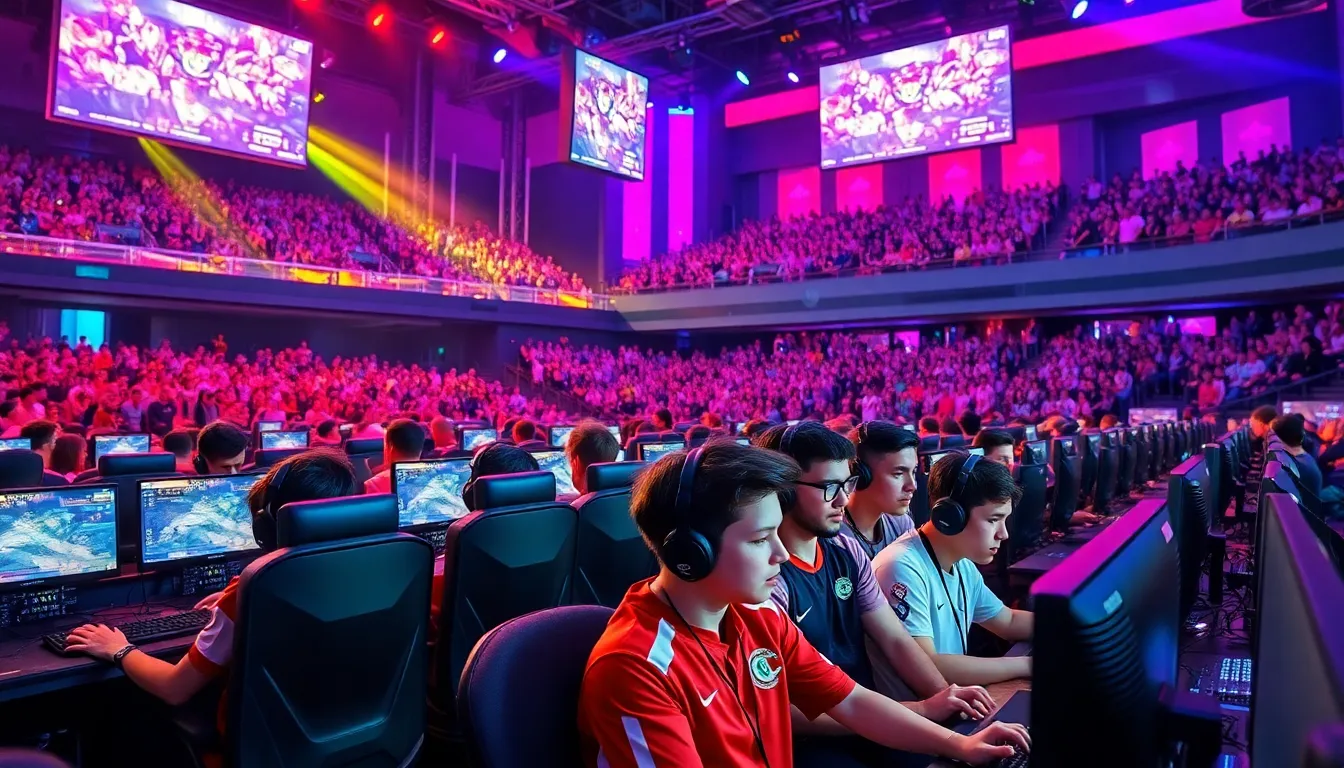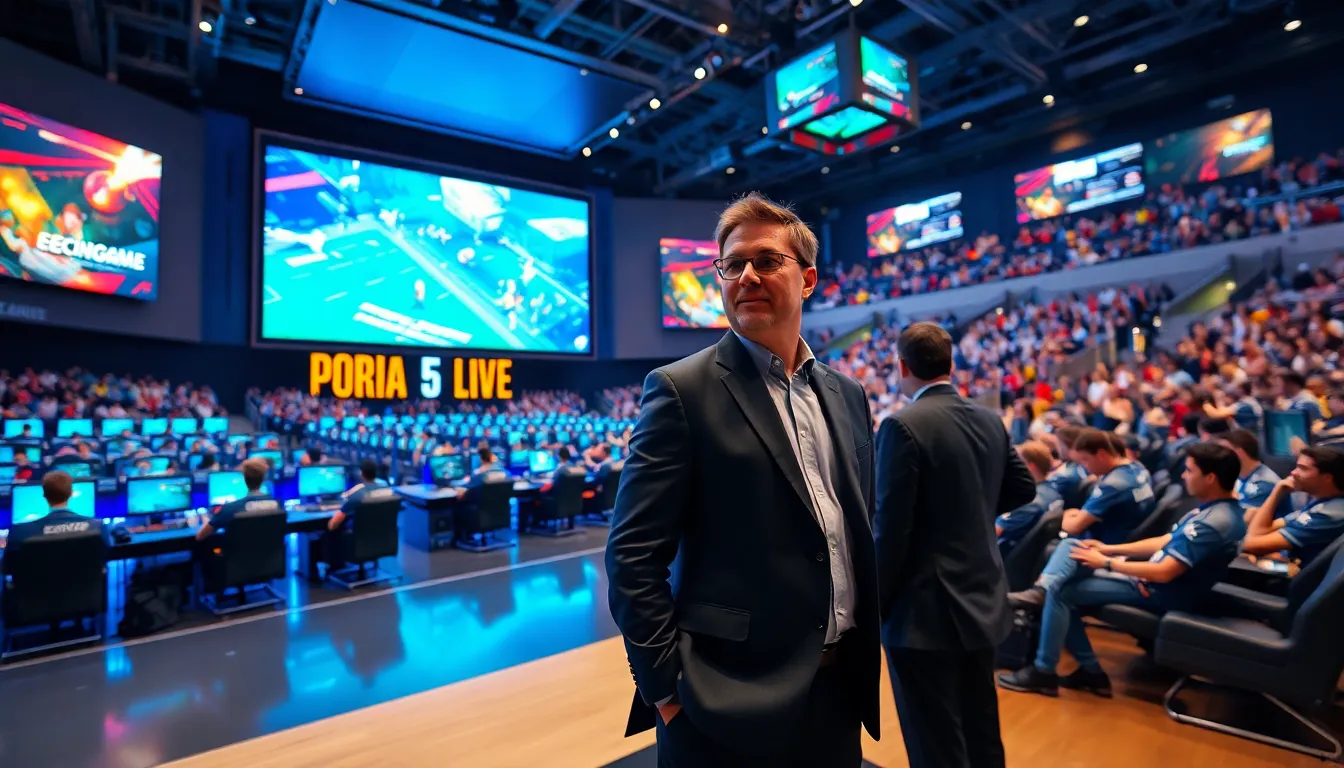Picture this: your buddy insists playing video games all day is a genuine sport. You chuckle, ready to roll your eyes, but wait. What if he’s onto something? Esports have taken the world by storm, captivating millions and demanding a closer look at how we define what a sport really is. Strap in: this deep dive will explore whether esports deserve a seat at the sports table or if they should remain on the sidelines. Get ready for some eye-opening arguments, a sprinkle of humor, and a whole lot of insights.
are esports a sport

Esports, short for electronic sports, involve competitive video gaming where players and teams face off in various games, ranging from first-person shooters to strategy-based titles. While it may seem like simply playing video games, the competitive aspects elevate esports to a whole new level. Events are organized in arenas, often streamed live to audiences worldwide, where players showcase their skills, strategy, and teamwork. Gamers can also earn substantial rewards in the form of cash prizes, further blurring the lines between hobby and career. With tournaments attracting thousands of spectators, esports have transformed into a cultural phenomenon.
The Evolution of Esports as a Competitive Activity
Esports didn’t just spring up overnight: it has been evolving for decades. The late ’70s and early ’80s kicked off the competitive gaming scene, with tournaments like the Space Invaders Championship. Fast forward to the 90s and early 2000s, where titles such as StarCraft and Counter-Strike began gaining traction in competitive circuits. The explosion of platforms like Twitch in the early 2010s propelled esports into mainstream consciousness, showcasing professional gamers and garnering millions of viewers, yes, millions. Today, esports tournaments can fill stadiums with fans who shout for their favorite teams, similar to any traditional sport.
What Defines a Sport? Key Characteristics
The debate about whether esports qualify as a sport often boils down to a few key characteristics. Traditionally, a sport involves competitive play, skill, strategy, and physical exertion, but how does that fit into the world of gaming? Let’s break it down.
Arguments For Esports Being Considered a Sport
Supporters argue that esports fulfill the typical requirements of any sport. There’s competition, teamwork, and strategic gameplay. Players train for hours on end, honing their skills, similar to athletes in traditional sports.
Cognitive Skills Involved in Esports
Mental agility plays a massive role in the success of esports players. Rapid decision-making, strategic thinking, and extensive knowledge of the game mechanics are crucial. Just as athletes need to assess their opponents quickly and accurately, so too do gamers.
Physical Aspects of Competitive Gaming
Although it may not involve running laps, physicality is still a factor in esports. Players require reflexes nearly on par with top athletes. Hand-eye coordination, sitting posture, and even stamina are essential, especially in long tournaments.
Cultural Recognition and Acceptance of Esports
The cultural landscape has shifted significantly in recent years. Media coverage, endorsements, and community events have brought esports into the limelight. Universities now offer scholarships for esports players, mirroring traditional athletic programs. Also, significant brands are investing in esports, recognizing its growing influence. The question now becomes not if esports are a legitimate sports form but when the broader culture will fully embrace it.
Challenges and Criticisms of Classifying Esports as Sports
Even though the progress, challenges remain in getting everyone on board with classifying esports as sports. Critics often cite the lack of physical exertion when compared to traditional sports like football or basketball. Also, games that rely heavily on RNG (random number generation) can complicate the competitive nature of esports. Detractors argue that luck can play too significant a role in determining winners, leading to questions about the established competition.
The Future of Esports in the Sporting World
As esports continue to evolve, their integration into the realm of traditional sports will likely deepen. Major leagues are increasingly looking to embrace esports as either complementary events or standalone experiences. With impressive advancements in technology, it’s feasible to imagine augmented reality tournaments alongside classic sports events. Also, as the younger generation continues to favor gaming, esports might just redefine our understanding of what a sport can be.

